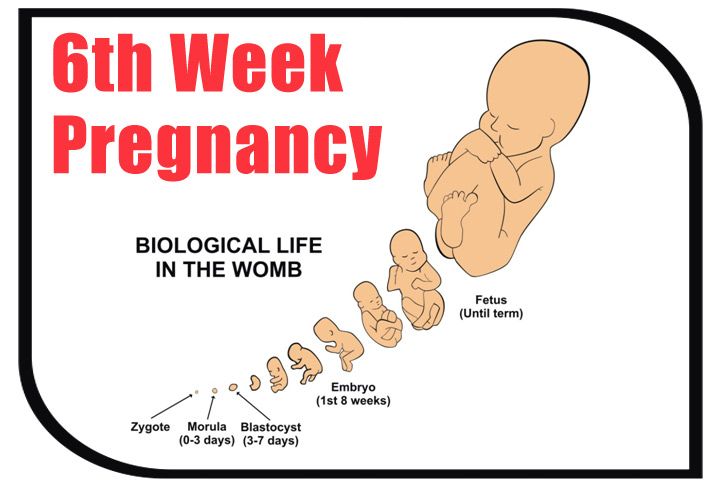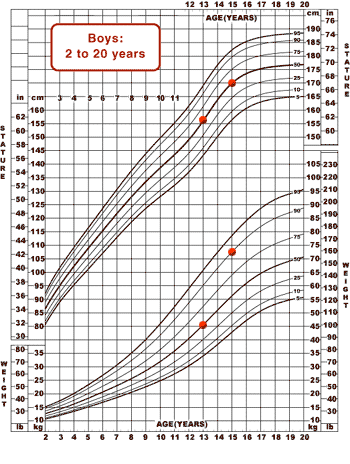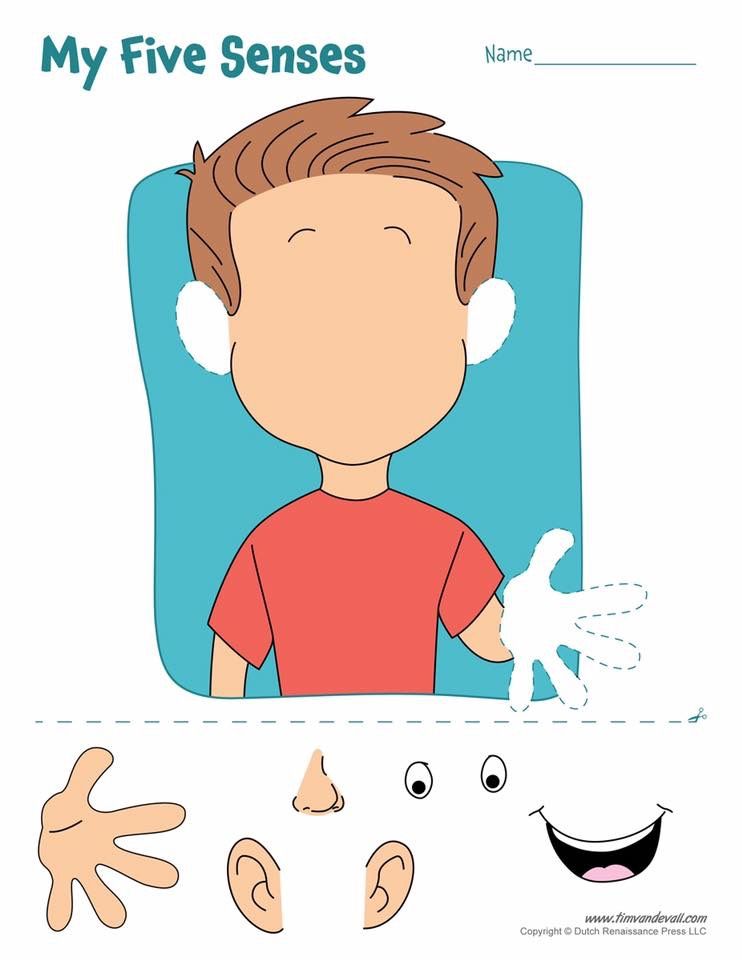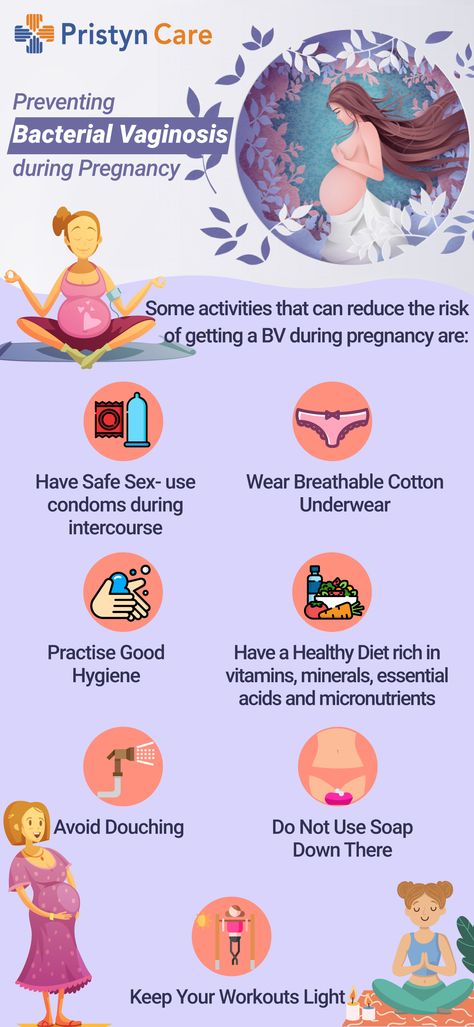Healthy pregnancy signs at 6 weeks
6 Weeks Pregnant | Pregnancy
When you're pregnant, you have lots of questions. Our week-by-week pregnancy guide is packed with lots of useful information. From what's happening inside your body, to how your baby is developing, and tips and advice on having a healthy pregnancy – this is your one-stop pregnancy guide!
- 1st trimester
- 2nd trimester
- 3rd trimester
Our week-by-week pregnancy guide is full of essential information. From early pregnancy symptoms to how your baby is growing and developing, you'll find it all here.
- Week 4
- Week 5
- Week 6
- Week 7
- Week 8
- Week 9
- Week 10
- Week 11
- Week 12
What's happening in my body?
Your baby is growing and changing at a fast pace as they start to grow arms, legs and ears. The liver, brain and musculoskeletal system are also developing. To achieve this transformation, the baby gets everything they need from you.
Feeling nausea
Morning sickness can occur at any time of day, although it's usually worse when you first wake up. It might help to keep a snack by your bed.
Try eating 6 small meals a day, get lots of rest, and follow a balanced, healthy diet with lots of water. Read these tips on healthy eating.
Some people find that ginger helps (such as ginger tea, ginger ale, crystallised ginger, and ginger biscuits). Others say sucking ice cubes and wearing travel acupressure wristbands helps.
If you can't keep food down, talk to your midwife or doctor.
Early pregnancy symptoms (at 6 weeks)
You may be dealing with morning sickness and tiredness, along with other early signs of pregnancy. Your symptoms could also include:
- a metallic taste in your mouth
- sore breasts
- mood swings (read about mood swings in week 8)
- headaches
- new food likes and dislikes
- a heightened sense of smell
- you may need to pee more frequently
- a white milky pregnancy discharge from your vagina
- light spotting (see your doctor if you get bleeding in pregnancy)
- cramping, a bit like period pains
- darkened skin on your face or brown patches - this is known as chloasma or the "mask of pregnancy"
- thicker and shinier hair
- feeling bloated
Read Tommy's guide to common pregnancy symptoms.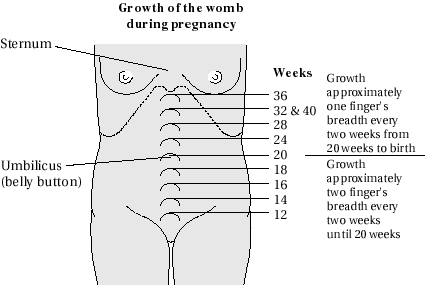
A lot of people start to feel better after the 1st trimester (after 12 weeks). Talk to your midwife or doctor about anything that's worrying you.
What does my baby look like?
Your baby, or embryo, is around 6mm long, which is about the size and shape of a baked bean. Some people think it resembles a tadpole with its little tail.
There's a bump where the heart is and another bulge where the head will be. Sometimes the heart beat can be picked up by a vaginal ultrasound scan, but you are unlikely to be offered one unless you've had IVF. The arms and legs are starting to form and are known as limb buds. There are tiny dents where the ears will be. The embryo is covered with a thin layer of transparent skin.
Action stations
The advice for week 6 is the same as for the earlier weeks. Try to rest as much as possible.
This week you could:
Share the news with your GP, or ask for an appointment with a midwife at your doctors' surgery. Alternatively you can refer yourself to your local hospital – look for contact details on their website.
Alternatively you can refer yourself to your local hospital – look for contact details on their website.
You'll need to arrange a booking appointment. This usually takes place between weeks 8 and 12 and takes around an hour. You can talk about the options for your pregnancy and the birth. You will also be offered screening tests for infectious diseases, and conditions such as Down's syndrome. You could ask about the Maternity Transformation Programme and how it could benefit you.
You will be offered your first dating scan at 8 to 14 weeks.
If it's your first pregnancy, you will probably have around 10 appointments and 2 scans in total.
Ask your midwife or doctor about online antenatal classes – they may be able to recommend one. The charity Tommy's has lots of useful information on antenatal classes and preparing you for birth.
Antenatal classes will give you the chance to meet other people and prepare you for parenthood. The NCT offers online antenatal classes with small groups of people that live locally to you.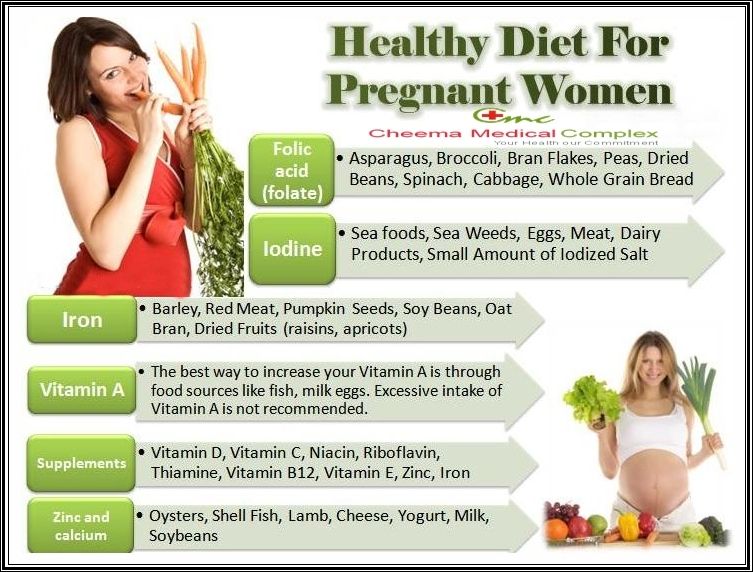
Take prenatal vitamins. You're advised to take 400 micrograms of folic acid, every day, until at least week 12. This helps your baby's nervous system to form and offers some protection from conditions such as spina bifida.
To keep bones and muscles healthy, we need vitamin D. From late March/early April to the end of September, most people make enough vitamin D from sunlight on their skin. However, between October and early March, consider taking a daily vitamin D supplement because we cannot make enough from sunlight.
Some people should take a vitamin D supplement all year round, find out if this applies to you on the NHS website. You just need 10 micrograms (it's the same for grown-ups and kids). Check if you're entitled to free vitamins.
Do you think you or your partner could have a sexually transmitted infection (STI)? If so, get it checked out, as this could affect your baby's development. Talk to your midwife or GP, or visit a sexual health clinic.
It's recommended that you do 150 minutes of exercise a week while pregnant. You could start off with just 10 minutes of daily exercise - perhaps take a brisk walk outside. Check out Sport England's #StayInWorkOut online exercises (scroll to the pregnancy section). Listen to your body and do what feels right for you.
You could start off with just 10 minutes of daily exercise - perhaps take a brisk walk outside. Check out Sport England's #StayInWorkOut online exercises (scroll to the pregnancy section). Listen to your body and do what feels right for you.
There's no need to eat for 2. If you pile on the pounds, you could put you and your baby at risk of health problems such as high blood pressure. Eat healthily, with plenty of fresh fruit and veg, and avoid processed, fatty and salty foods. You may be able to get free milk, fruit and veg through the Healthy Start scheme.
If you have a long-term health condition, then let your specialist or GP know that you're pregnant as soon as possible. Don't stop taking any regular medication without discussing it first with your doctor.
How are you today? If you're feeling anxious or low, then talk to your midwife or doctor who can point you in the right direction to get all the support that you need. You could also discuss your worries with your partner, friends and family.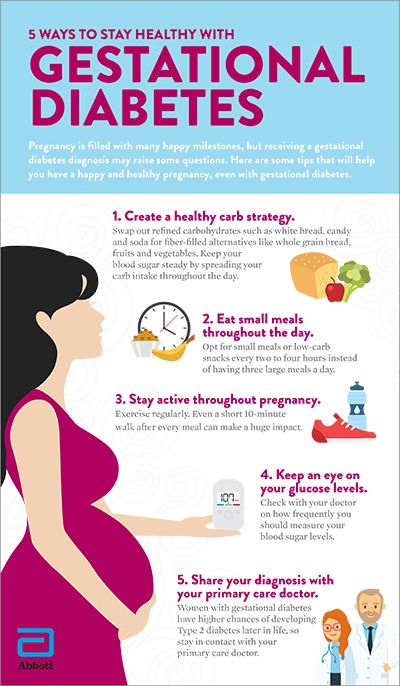 You may be worried about your relationship, or money, or having somewhere permanent to live. Don't keep it to yourself. It's important that you ask for help if you need it.
You may be worried about your relationship, or money, or having somewhere permanent to live. Don't keep it to yourself. It's important that you ask for help if you need it.
You and your family should follow the government and NHS guidance on coronavirus (COVID-19):
To find out about about COVID-19 and pregnancy, childbirth and breastfeeding, have a look at advice on the:
Want to know when the baby's due?
Use the NHS's pregnancy due date calculator. You'll get a more accurate date from your doctor or midwife when you have a dating scan (usually at 8 to 14 weeks).
Go back to week 5
Go to week 7
6 Weeks Pregnant: Symptoms and Baby Development
At 6 weeks pregnant, you’re already in your second month of pregnancy and some important developments are under way.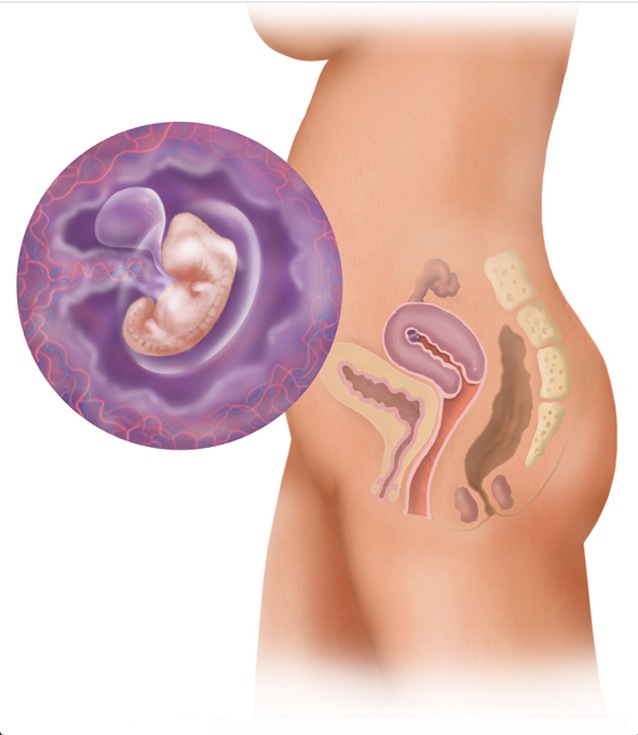 Among other milestones, your little one’s brain and nervous system are quickly developing, as are small bumps and buds that will become their eyes, ears, arms, and legs. Read on to learn more about what happens at 6 weeks pregnant and what symptoms you might feel.
Among other milestones, your little one’s brain and nervous system are quickly developing, as are small bumps and buds that will become their eyes, ears, arms, and legs. Read on to learn more about what happens at 6 weeks pregnant and what symptoms you might feel.
These are some of the key things to anticipate during your sixth week of pregnancy:
Your little one is making big strides in terms of development! During this week, the foundations for major organs and systems are being established.
You might start to feel more pregnancy symptoms at 6 weeks, including morning sickness, fatigue, and breast tenderness.
Don’t forget about the emotional symptoms of pregnancy. There’s lots you can do to keep yourself centered as mood swings come and go, such as documenting your pregnancy journey with a journal or book.
At 6 weeks pregnant, your baby is making rapid progress in terms of growth and development.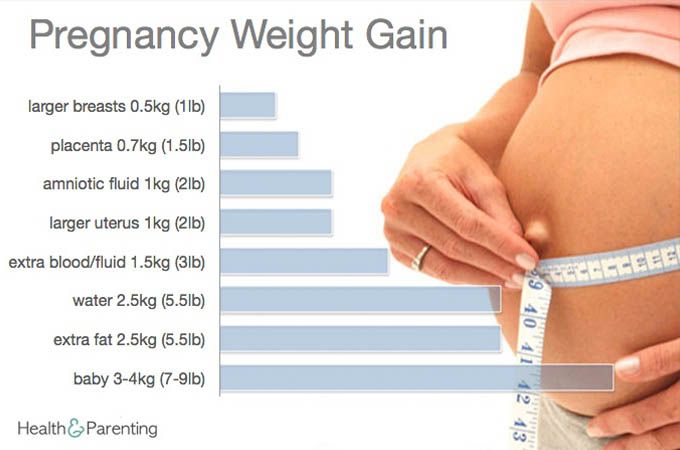 This week’s most important milestones include the following:
This week’s most important milestones include the following:
The neural tube begins to close over what will become your baby’s spinal cord.
The areas that will become the eyes and ears have started to project as bumps, and other tiny buds are forming that will eventually grow into arms and legs.
At 6 weeks pregnant, a tiny heartbeat of about 105 beats per minute may be detectable via ultrasound this week, and the brain and nervous system are also developing quickly.
Your little one’s nose, mouth, and inner and outer ears are just starting to take shape, along with the lungs. In just a few weeks, breathing tubes will form between the throat and the lungs, getting ready for your little one’s first breath of air (and maybe a loud wail) at birth.
Wondering when you might be able to meet your baby? Try our Due Date Calculator.
How Many Months Is 6 Weeks Pregnant?Pregnancy is most often measured in weeks, and sometimes in months, too. Given that the 40 weeks of pregnancy don't fit evenly into months, it gets a little tricky, but at 6 weeks, you’re thought to be in your second month of pregnancy, which typically includes weeks 5 through 8.
Given that the 40 weeks of pregnancy don't fit evenly into months, it gets a little tricky, but at 6 weeks, you’re thought to be in your second month of pregnancy, which typically includes weeks 5 through 8.
At six weeks, your baby’s size is about 3/16 of an inch—about the size of a pomegranate seed!
Your Baby: What Does 6 Weeks Pregnant Look Like?Look at the visual below to get an idea of how things are progressing inside your belly. At 6 weeks pregnant, things are starting to take shape!
6 Weeks Pregnant: Your SymptomsAt 6 weeks pregnant, you might experience various symptoms of pregnancy, though not everyone does. Here are some symptoms you might notice during your sixth week:
Physical and Emotional SymptomsFrom morning sickness to spotting to mood swings, there are quite a few symptoms of pregnancy that might occur at 6 weeks.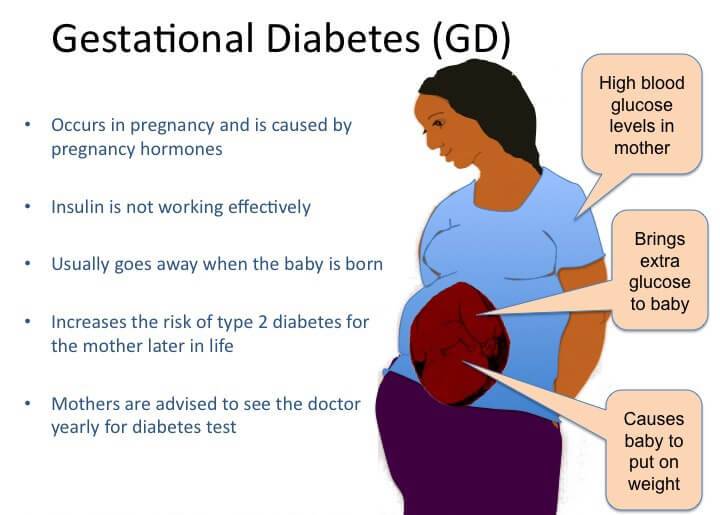
Spotting. It’s not unusual to see some spotting at 6 weeks. But any bleeding should be light, not even enough to cover a small pantyliner. If you see a lot of blood, if the spotting lasts longer than two days, or you have any concerns, be sure to contact your healthcare provider right away.
Cramping. Slight cramping and typical discharge that’s white or clear (or slightly tinted due to spotting) is normal at 6 weeks pregnant. It’s a sign your uterus and the surrounding tissues are expanding to make room for your baby. But at 6 weeks pregnant (or anytime during your pregnancy), if you feel stomach or lower abdomen pain more severe than typical period cramping, especially if accompanied by a fever or diarrhea, contact your healthcare provider immediately.
Constipation. You may also experience constipation because of an increase in progesterone, which slows down the digestive tract. To deal with this, exercise regularly, eat a balanced diet with high-fiber foods, and drink plenty of water.

Breast tenderness. This week, your breasts may feel tender or achy because of increased blood flow; this is a normal part of your body preparing for breastfeeding. Wearing a supportive bra can help with discomfort.
Morning sickness. If you’re at 6 weeks pregnant and have had no morning sickness, this week may be when it shows up. Morning sickness can happen any time of day or night. It may be triggered by certain movements, smells, an empty stomach, or nothing at all. Munching on crackers and other simple, starchy foods can help, so keep a little something on hand for those random bouts of nausea in 6 weeks of pregnancy and beyond.
Frequent urination. You can expect to run to the bathroom more often than usual. Your kidneys are working overtime to process the extra fluid in your body now.
Exhaustion. You may feel completely exhausted due to pregnancy fatigue, and that’s OK. As your levels of the hormone progesterone are increasing, making you more and more tired, you may find taking naps can help; some women also say that little snacks and light exercise are effective in fighting off fatigue.
 Be sure that you’re getting plenty of iron, because too little can cause anemia and lead to tiredness.
Be sure that you’re getting plenty of iron, because too little can cause anemia and lead to tiredness.Mood swings. You may be in for some emotional highs and lows between now and the end of your pregnancy. Mood swings are common in the first trimester, often subside in the second, and sometimes return toward the end of the third trimester. Eating well, chatting with friends, taking naps, and engaging in light exercise are some easy ways to help yourself feel better.
No symptoms. If at 6 weeks pregnant I have no symptoms, should I be worried? You’re not the only one asking this question! The good news is that it’s possible to be 6 weeks pregnant with no symptoms whatsoever. Every pregnancy is different, so you might just be someone who can enjoy these symptom-free days without worry.
Will you be showing at 6 weeks pregnant? This is a common question, as you might be anticipating a belly bump now or sometime soon.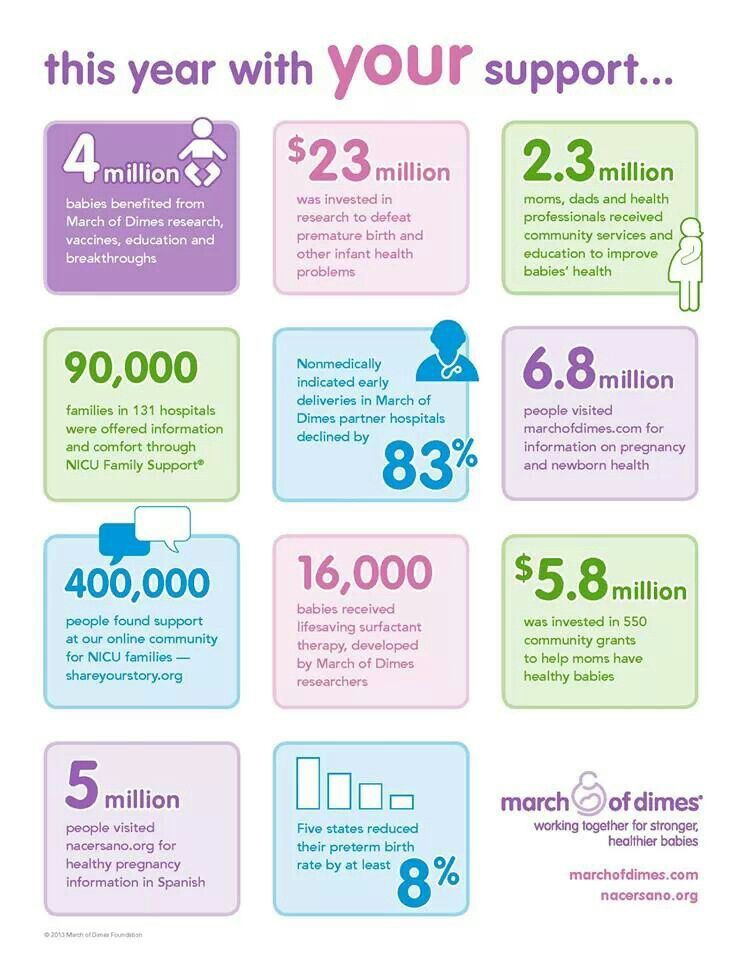 But a baby bump probably won't appear this early in your pregnancy. Everyone is different, but a pregnant belly could be visible at around 12 to 16 weeks.
But a baby bump probably won't appear this early in your pregnancy. Everyone is different, but a pregnant belly could be visible at around 12 to 16 weeks.
To help you get a better sense of what your belly might look like at 6 weeks pregnant, check out the visual below:
Early on in your pregnancy, there’s a lot to think about, and you may have plenty of questions or concerns. To help you through this exciting week, here are a few things you may want to take into consideration.
Many wonder if 6 weeks is too early to tell family that you’re pregnant. Another common question is this one: Should I tell my boss I'm pregnant at 6 weeks? The choice is yours, but it’s common to wait until the end of the first trimester or the beginning of the second trimester to share the news more widely, as this is when the risk of miscarriage decreases significantly. Still, you might want to have someone in the loop for support at the start, so check out these cute and creative ways to tell your partner you’re pregnant!
One of the first things you may notice early in your pregnancy is an increase in the size of your breasts, and the surge of pregnancy hormones you're experiencing now may also lead to some skin changes.
 Your nipples may turn a shade or two darker thanks to hyperpigmentation.
Your nipples may turn a shade or two darker thanks to hyperpigmentation. Look in your closet to make sure you'll have some stretchy or roomy clothing to wear during the coming weeks. Your body will soon start to expand, and you’ll want to stay comfy even if you’re not yet ready to transition into maternity clothes. You might also want to avoid tight-fitting pants from this point on and choose cotton underwear—and don't forget to switch your bra size when needed for your comfort.
If you’re just now wondering if you’re pregnant and taking a test at six weeks, it’s still possible to have a false negative, as your levels of the pregnancy hormone hCG might not be detectable yet. To confirm your pregnancy, it’s best to do so with your healthcare provider.
Around this time, you may also want to start a week-by-week photo journal or a pregnancy scrapbook for your notes, photos, and mementos. This is a nice way to celebrate your pregnancy and is also a lovely keepsake you can share with your baby in a few years’ time.
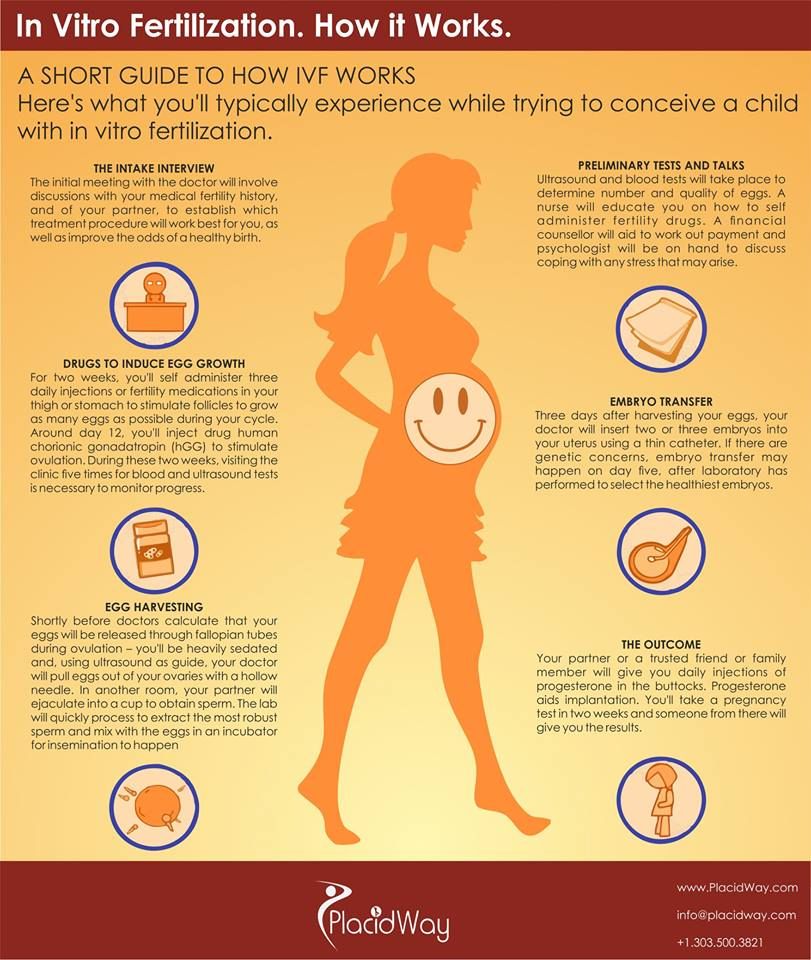
You can also download our Pregnancy Guide, which has all the information you need to navigate the first trimester and beyond.
Read up on the foods to avoid during pregnancy. You might like to make a list that you can take with you when you go shopping or think about substitutions you can make.
Now or sometime soon you'll want to book an appointment with your healthcare provider. Your prenatal visits are usually scheduled about once a month until the last two months of your pregnancy, when they will become more frequent. These regular checkups give you the perfect opportunity to ask questions and express any concerns. Here are some questions you might want to ask your healthcare provider at 6 weeks of pregnancy:
What are some safe options for exercising while pregnant?
Where will you give birth, and what should you know in advance about the facility and its procedures?
If you have a chronic condition (like diabetes or high blood pressure) for which you take medication, how can you manage your condition safely during pregnancy?
Should you be taking folic acid?
What prenatal care will you be getting?
Is the morning sickness you’re experiencing considered normal or severe? Some experience a more severe form of morning sickness called hyperemesis gravidarum, and your healthcare provider can determine what you’re experiencing.
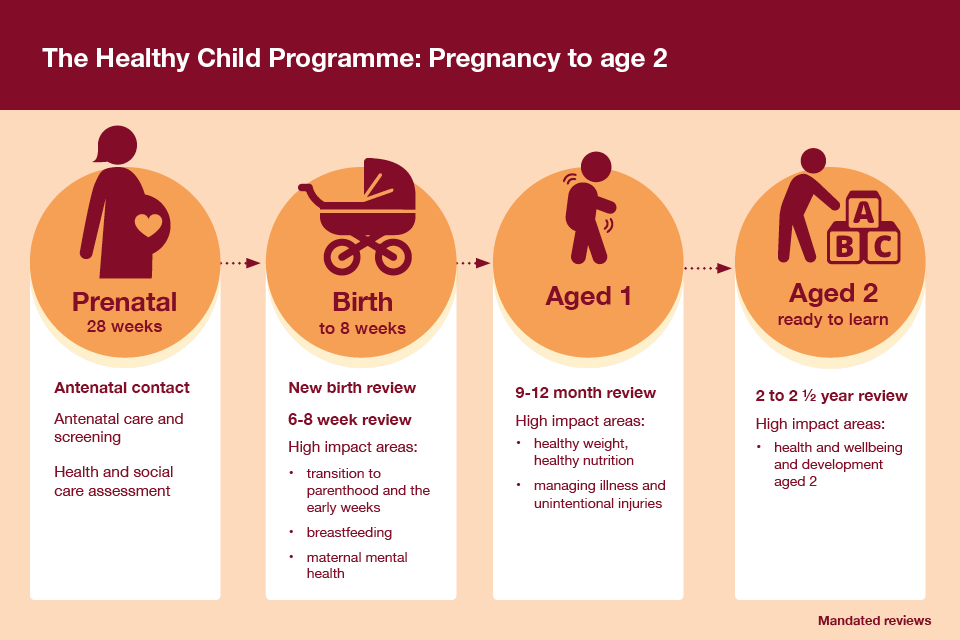
At this busy and exciting time in your life, use this list to stay focused and organized:
□ If you don’t already have someone, choose a prenatal care provider.
□ To help with tender breasts, wear a supportive bra, even at night. For more on this topic, read our article on breast tenderness during pregnancy.
□ Drink plenty of water, eat high-fiber foods, and exercise regularly to help avoid constipation.
□ Find out who to call if your healthcare provider is unavailable or if it’s after hours and you have a medical concern.
□ Save your provider’s number to your phone and have emergency contact numbers stuck on your fridge and saved to your contact list, too.
□ Learn how due dates are calculated and how far along you are in your pregnancy.
□ Check out the warning signs you should not ignore so that you know what to look out for and what to do if you happen to notice one.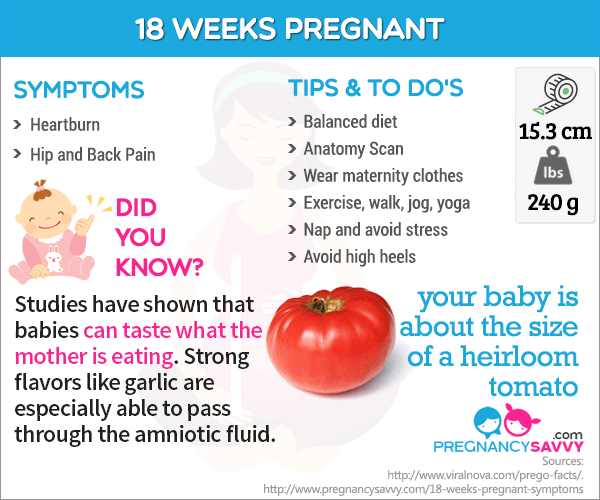
□ Although this type of pregnancy is rare, it’s a good idea to read up on the signs and symptoms of an ectopic pregnancy, even at 6 weeks pregnant.
6 weeks pregnant | IPF – Family Planning Institute
The woman's pregnancy continues to develop. In terms of time - half of the trimester has already passed and the uterus has increased so much that the doctor, even without ultrasound, will be able to determine the interesting position of the lady - during a routine gynecological examination. And even the most inattentive ladies are aware of the changes that have occurred in their body.
Sixth week of pregnancy: signs and sensations
Many women will remember this period as a period of nausea, fatigue, dizziness. Mood swings will also be frequent guests in a pregnant woman, so relatives should be sympathetic to possible whims and claims. This time period will not last long - the hormonal background will calm down and everything will fall into place.
Here are the most common complaints of women:
- Fatigue, lethargy, drowsiness.
- Change in taste priorities in food, increased sense of smell. nine0014
- Profuse salivation.
- Increased sensitivity of the breast due to its enlargement.
- The areolas of the nipples will darken.
- Dizziness, low blood pressure.
Any sensations during the sixth week of pregnancy are completely optional and individual. Pregnancy can pass without toxicosis.
What are the physiological changes in the body at the sixth week of pregnancy?
Woman:
The hCG hormone secreted by the embryo continues to stimulate the mother's corpus luteum. However, you should not worry: by the second trimester, the formation will resolve. In turn, the corpus luteum continues to secrete progesterone, which also increases in quantity. Also, it is progesterone that causes frequent urge to urinate and constipation, due to the relaxation of the walls of the intestines and bladder.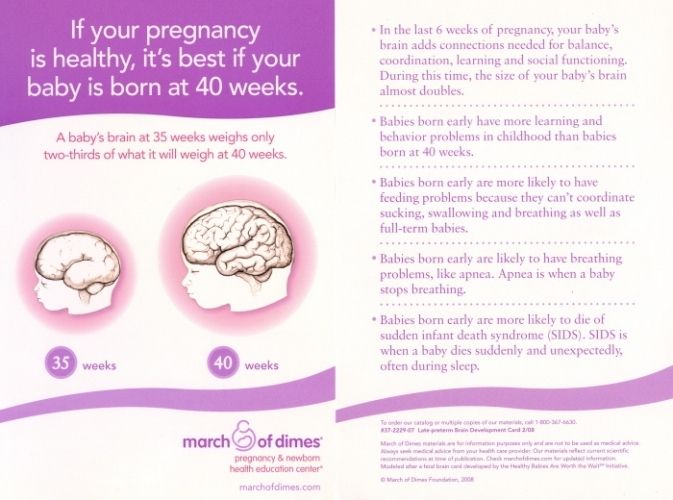
A woman's breasts are undergoing transformations. The ducts lengthen and expand. nine0003
Hormonal changes affect the condition of the skin. Dry skin will look better after a change, but oily skin will not always benefit.
Slender girls often gain weight, because the body prepares itself for a long gestation.
There is an increase in the size of the abdomen. Not only because of the baby, but also because of poor bowel function.
In the fetus:
- The skull is actively developing.
- The thymus gland, the most important component of the immune system, is being formed. nine0014
- The respiratory system is developing.
- Future eye lenses and ear placodes appear, which become the basis of the hearing organs.
- In theory, the fetus is already able to hear. More precisely, the baby perceives vibrations in the surrounding fluid.
- Fetal growth - 2-4 mm.
Symptoms at the sixth week of pregnancy
- Discharge at the sixth week of pregnancy - whitish or colorless.
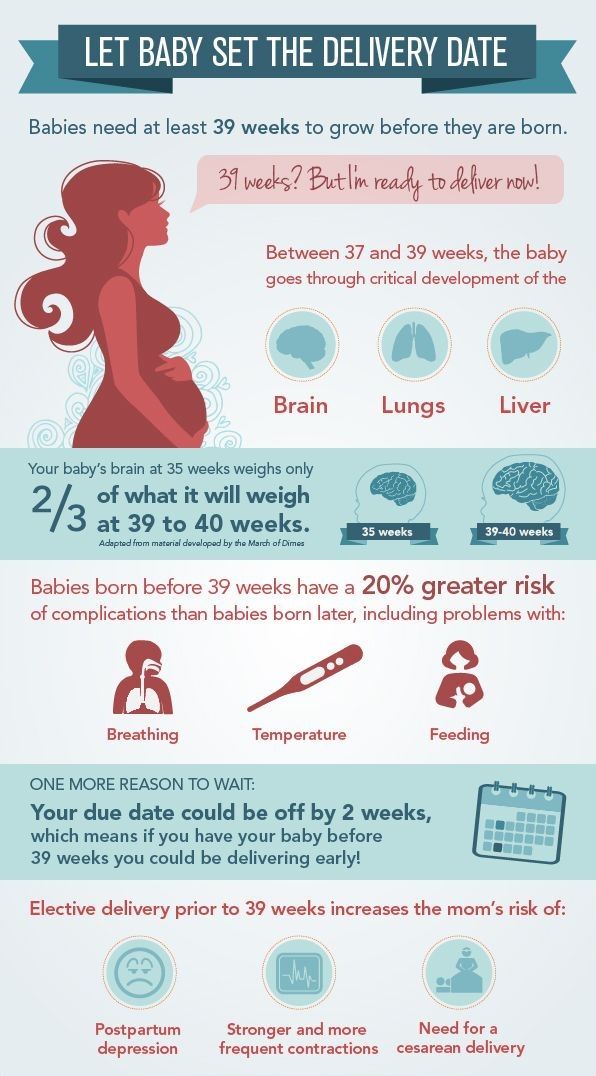 They are associated with hormonal changes. However, if the discharge is a different color, it may indicate an infection. It is recommended to consult a doctor immediately. nine0014
They are associated with hormonal changes. However, if the discharge is a different color, it may indicate an infection. It is recommended to consult a doctor immediately. nine0014 - Constipation and heaviness in the stomach are solved by changing the diet.
- Low back pain - the effect of progesterone on the vertebral discs.
- Pain in the lower abdomen associated with stretching of the muscles of the uterus. Mild periodic pain is normal when it is the sixth week of pregnancy after conception, but if the pain becomes more frequent, their nature has changed, you should call your doctor.
Sixth week of pregnancy: tests
0003
- general analysis of urine, blood;
- blood type, Rh factor, sugar;
- analysis for syphilis, toxoplasmosis, for antibodies to herpes, cytomegalovirus;
- tests for HIV, hepatitis;
- coagulogram;
- To check for infections in the genital tract, the gynecologist takes a sample of vaginal discharge.
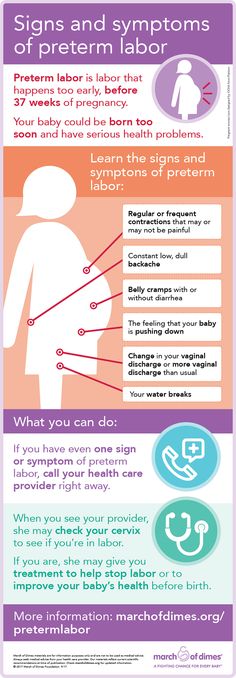
If the gynecologist does not like any of the results, he will order additional tests.
Sixth week of pregnancy: examinations
In addition to tests, the specialist will definitely prescribe certain examinations.
- Cardiogram of the heart. If the doctor detects abnormalities and pathologies in the work of the mother's heart muscle, the question of terminating the pregnancy will arise.
- Ultrasound photo at the sixth week of pregnancy will show the work of the baby's heart, the number of embryos. An ectopic pregnancy is also ruled out.
- Optometrist, neuropathologist, dentist, ENT specialist, therapist.
- In case of problems with the kidneys, the expectant mother should consult a nephrologist. nine0014
All examinations and analyzes are required. The doctor is trying to understand how the mother's body works, whether it is able to bear a healthy child. If serious deviations are found, which specialists cannot correct without harming the fetus, the question of abortion will arise.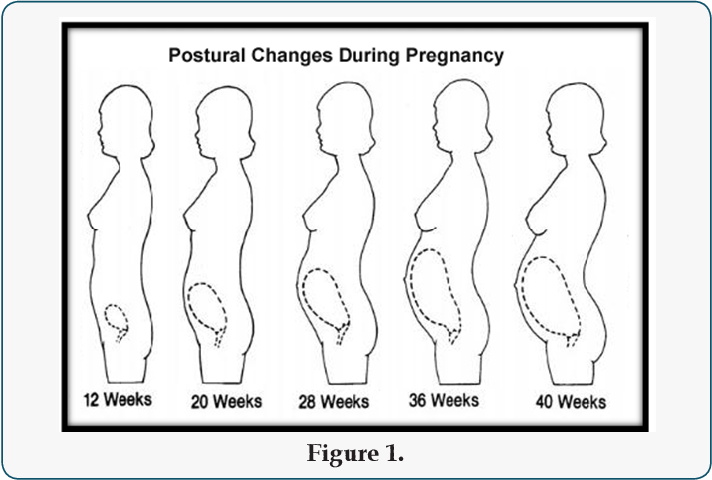
Nutrition in the sixth week of pregnancy
- Preservatives, dyes may adversely affect the health of the child in the future.
- Remove fast food from the weekly menu. Food should not contain a large amount of salt and sugar, be unnecessarily spicy. nine0014
- Try to buy only natural products in supermarkets and bazaars.
- Strong tea, coffee, raw fish are not recommended.
- Toxicosis is an unpleasant thing. Consult with experts, perhaps certain products should be removed from the menu and replaced with others.
- It is obligatory to take folic acid - this will prevent many anomalies.
- Add more foods rich in vitamin B9 to your menu.
The main thing is to listen to your body during this period. And try to replace dangerous foods with healthy alternatives. nine0003
6th week of pregnancy: complications
The main danger is the incorrect formation of the fetus during this period. But miscarriages, unfortunately, are not uncommon at this time.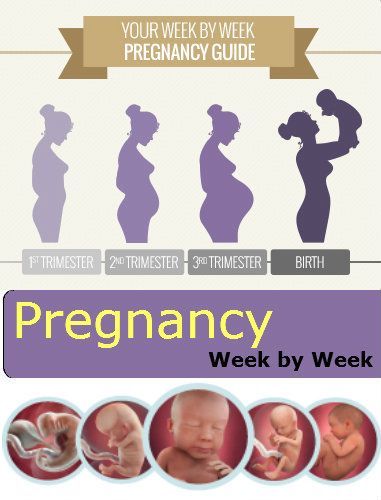 Causes - fetal anomalies that are incompatible with life.
Causes - fetal anomalies that are incompatible with life.
Probable frozen pregnancy. This danger is almost impossible to foresee. The first trimester is the time of such cases. Listen to your feelings, because the death of the fetus leads to poisoning of the body, which can lead to the death of a woman.
Signs of frozen pregnancy:
- Weakness, chills.
- Bloody discharge.
- Pulling unpleasant feelings in the lower abdomen.
- Termination of breast augmentation.
Causes of frozen pregnancy:
- Infection.
- Hormonal failures.
- Fetal development disorders.
- Wrong way of life.
Recommendations and advice for expectant mothers
- 6th week of pregnancy is a mandatory period to follow the daily routine and all doctor's recommendations. Not only the health of the baby, but also the future mother depends on this. nine0014
- Less contact with household chemicals.
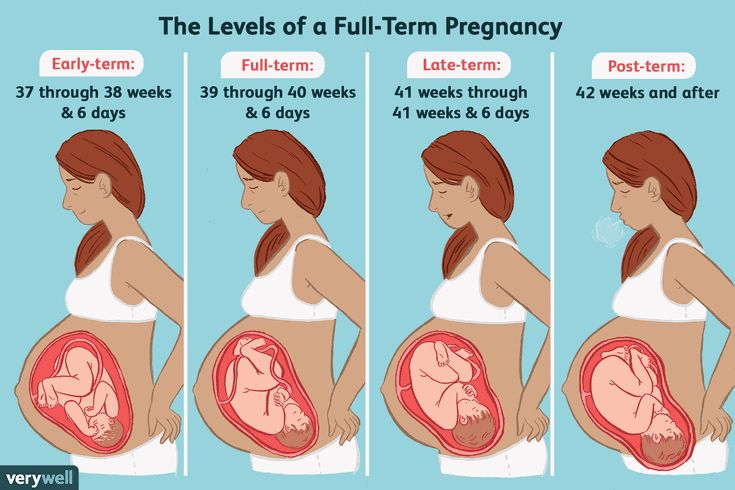
- Eliminate foods that cause nausea, but replace them with others that are no less useful.
- Try to experience only positive emotions.
- Relax, pay attention to yourself.
- Carry light snacks with you.
- Give up alcohol, cigarettes.
- Take frequent walks in the fresh air. If this is not possible, ventilate the room regularly.
- Sex is acceptable if there is no threat of miscarriage. nine0014
During this period, take care of your health, eat right, enjoy every minute of pregnancy - after all, not much time will pass and you will meet your long-awaited baby.
6 weeks of pregnancy what happens to the fetus
Contents
At this time, the size of the fetal egg increased to 25 mm, and the baby has already grown to 6 mm. Its main organs and systems continue to develop, these are the lungs, and the bone marrow, and the spleen. Significant changes occur with the digestive tract - the esophagus and stomach appear.![]() External manifestations of the genital organs also become noticeable, a little more - and you can find out the sex of the baby. But the most important process of this period is the active formation of the central nervous system, which allows a 6-7-week-old baby to already respond to external influences. nine0003
External manifestations of the genital organs also become noticeable, a little more - and you can find out the sex of the baby. But the most important process of this period is the active formation of the central nervous system, which allows a 6-7-week-old baby to already respond to external influences. nine0003
Just now a significant event is happening in the development of a small organism - its tiny heart begins to beat, beating the beats of life at a speed of 140-150 beats per minute, and launching important processes of blood circulation in a tiny little man.
At the sixth week of pregnancy, the ears, nose, eyes begin to form in the crumbs, the rudiments of arms and legs appear.
And what happens to mother?
At the sixth week of pregnancy, most women are already aware of their pregnancy. The absence of menstruation, as well as hormonal changes in the female body, give this confidence more and more confirmations, which will be clearly demonstrated by a positive pregnancy test result and witnessed when visiting a gynecologist and an ultrasound room or donating blood for chorionic gonadotropin.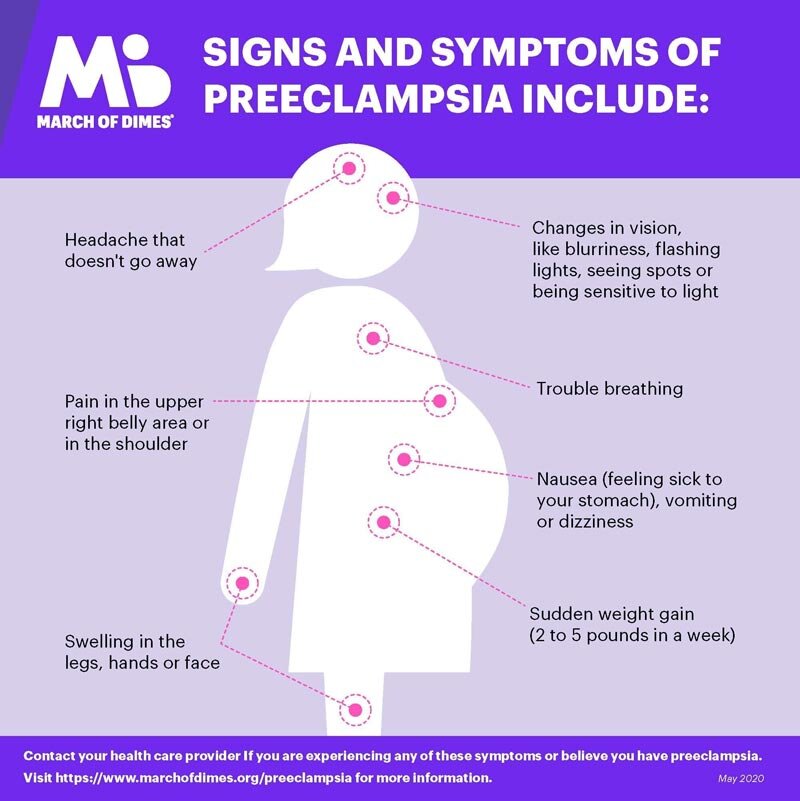 nine0003
nine0003
Need to know!
If you don't get your period and the pregnancy test shows only one line, you need to see a specialist immediately. This state of affairs can indicate both problems in the body and, unfortunately, a problem pregnancy.
The 6th week of pregnancy is characterized by inconstancy of the emotional state, when periods of high spirits are followed by periods of apathy and fatigue. Some women become passive and tired, while others, on the contrary, become more active and active. nine0003
Gastronomic preferences will also change. Someone begins toxicosis, accompanied by headaches, nausea, increased salivation. But in the interests of the future baby, you should carefully monitor your diet and look for opportunities to fully eat. If you do not experience these problems, you need to calculate your diet taking into account the good nutrition that the baby needs, but remember that being overweight will bring discomfort not only to you, but also to the baby, interfering with its full development.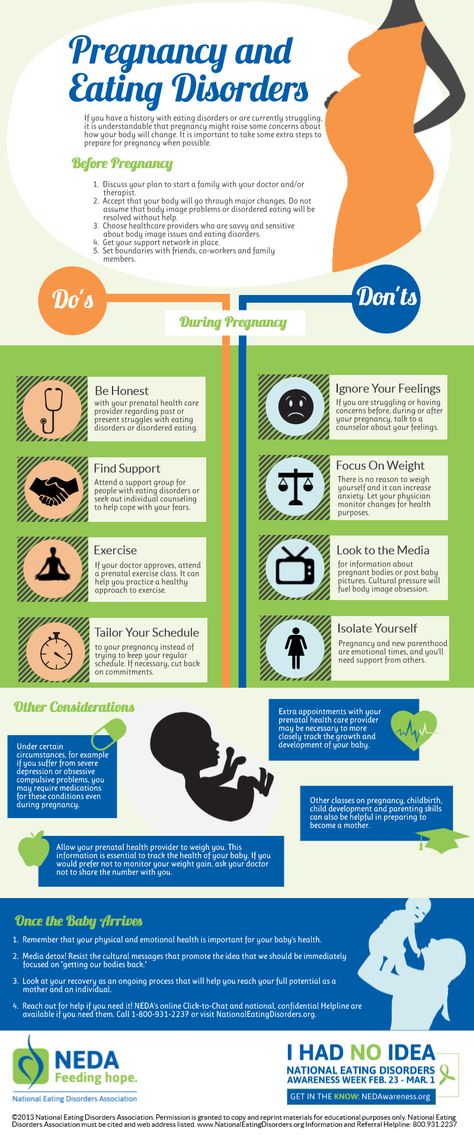 In addition, a newly-made expectant mother may be faced with a constant desire to try something “such” and she may become hypersensitive to all kinds of smells and aromas. nine0003
In addition, a newly-made expectant mother may be faced with a constant desire to try something “such” and she may become hypersensitive to all kinds of smells and aromas. nine0003
The woman's body is also transformed. The breast swells and obviously changes in size, while painful sensations may appear in it, darkening of the nipples is possible. Pulling and aching pains can be felt in the lower abdomen, if this is situational - do not worry, if not, then you should consult a doctor.
Together with the baby, the uterus itself grows in size, which is especially noticeable for your bladder. That is why you need to urinate more often than before. nine0003
But with the intestines, on the contrary, constipation may appear, which is caused by changes in the hormonal background of pregnancy. Also, increased gas formation can occur in the intestines, increasing its volume and waist size, which can be mistaken for changes in the size of the abdomen due to an increase in the uterus.